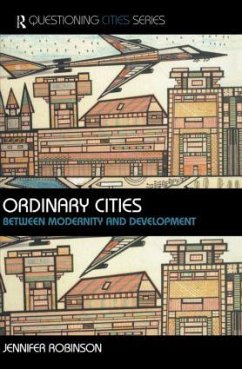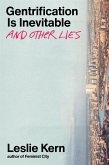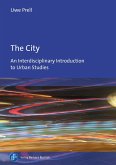Key urban scholars and debates, from Simmel, Benjamin and the Chicago School to Global and World Cities theories are explored, together with anthropological and developmentalist accounts of poorer cities. Offering an alternative approach, "Ordinary Cities" skilfully brings together theories of urban development for students and researchers of urban studies, geography and development.
This groundbreaking book establishes a new framework for thinking about urban development and crosses the longstanding divide in urban scholarship and urban policy, between Western and other cities.
Hinweis: Dieser Artikel kann nur an eine deutsche Lieferadresse ausgeliefert werden.
This groundbreaking book establishes a new framework for thinking about urban development and crosses the longstanding divide in urban scholarship and urban policy, between Western and other cities.
Hinweis: Dieser Artikel kann nur an eine deutsche Lieferadresse ausgeliefert werden.
"All cities are ordinary, argues Robinson, and categorizing them as Western, Third World, developed, developing, world, or global ascribes prominence to certain cities and to certain features of cities. Instead, she starts from the fact that all cities are dynamic and diverse, if conflicted, arenas for social and economic life and anchors on that notion a new post-colonial framework for thinking about cities that avoids the underlying assumption of urban scholarship that Western cities are exemplary and Third World cities more or less poor imitations." --Reference & Research Book News









